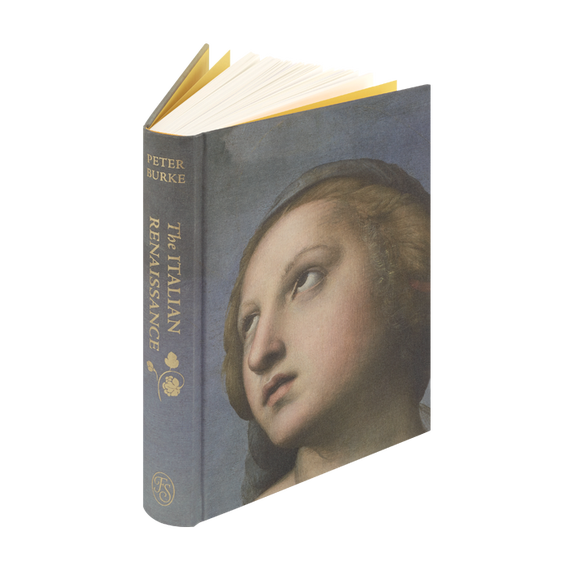
From patronage to postcode – Peter Burke reveals how social history shaped Renaissance art in our exquisite edition illustrated with examples of the period’s great works.
Nepotism, murder and debauchery abound in this gripping portrait of a family that bribed their way to power in Renaissance Italy. The first illustrated edition, this is designed in series with Hibbert’s The Rise and Fall of the House of Medici.
Greedy, lascivious and unashamedly corrupt, the Borgia name has come to define the politics of Renaissance Italy. Christopher Hibbert’ thrilling history, published here in series with our best-selling edition of The Rise and Fall of the House of Medici, records their violent and dissolute rule. This edition boasts 24 pages of colour plates, including portraits of the ambitious Pope Alexander VI and his daughter, Lucrezia, famed for her beauty and her ill-fated husbands.
‘Christopher Hibbert is the doyen of court historians’
- Evening Standard
At the head of the family sat Rodrigo Borgia, who was crowned pope in 1492 (thanks to a series of generous bribes) and proceeded to indulge in nepotism, simony and lechery. His cruel son Cesare became a cardinal as ‘a mere boy’ and papal legate at 21, and inspired Machiavelli’ The Prince with his political manoeuvres. Haughty Juan, a year younger, ‘could be seen swaggering about Rome in gorgeous attire’ before his corpse was pulled from the Tiber in 1497 (his untimely death often attributed to Cesare). Their sister Lucrezia, whose closeness to her male relatives inspired many a lurid rumour, grew up to be an intelligent, music-loving femme fatale, both admired and vilified in equal measure.
Hibbert’ colourful portrait of this notorious family is filled with anecdotes and testimonies from contemporary authors that both vindicate the Borgias’ reputation and remove the layer of myth that surrounds them.
Bound in blocked cloth with a blocked spine label
Gold gilded page tops
Set in Centaur with Arabesque ornaments
280 pages
Frontispiece and 24 pages of colour plates and 2 maps
Printed endpapers
Plain slipcase
9˝ x 6¾˝
Christopher Hibbert (1924–2008) was a writer, biographer and historian. His time reading History at Oriel College, Oxford, was interrupted by the Second World War. He served with the London Irish Rifles as part of the Eighth Army during the Italian Campaign – where he was wounded twice and awarded the Military Cross – before finally graduating in 1948. Working initially as a land surveyor and writing in his spare time, Hibbert was awarded the Heinemann Award for Literature in 1962 for his fourth book, The Destruction of Lord Raglan, and went on to write over 50 titles. His significant works include Benito Mussolini (1962), Waterloo (1967), George IV (2 vols, 1972–3), The Rise and Fall of the House of Medici (1974; Folio Society edition 1998), The English: A Social History (1987) and Redcoats and Rebels: The War for America, 1770–1781 (1990; Folio Society edition 2006). Hibbert was a Fellow of the Royal Society of Literature and the Royal Geographical Society.
